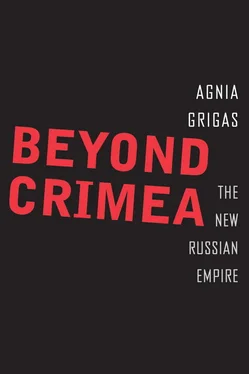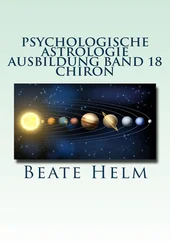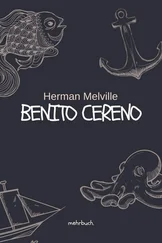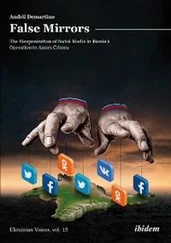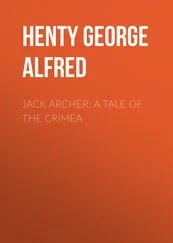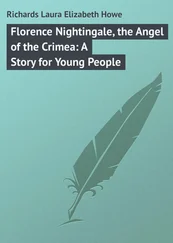49. Rustem Falyakhov, “Rossiya zaplatit za soyuznikov,” Gazeta.ru, 23 December 2014, http://www.gazeta.ru/business/2014/12/23/6356133.shtml.
50. Andrei Kolesnikov, “Integratsioznye processy,” Kommersant , 25 October 2013, http://kommersant.ru/doc/2327907; Nargis Kassenova, “Kazakhstan and Eurasian Economic Integration: Quick Start, Mixed Results and Uncertain Future,” Russei.Nei.Reports n14, Centre Russie/NEI, November 2012, p. 24.
51. Sergei Strokan, “Nursultan Nazarbayev vstupilsya za nezavisimost,” Kommersant, 1 September 2014, http://www.kommersant.ru/doc/2557170.
52. Rossiiskiy Sovet po Mezhdunarodnym Delam, “Interesy Rossii v Tsentral’noy Azii,” p. 12.
53. “Uzbekistan Will Never Join Any Union That Resembles Soviet Union: Islam Karimov,” Tengri News, 16 January 2015, http://en.tengrinews.kz/politics_sub/Uzbekistan-will-never-join-any-union-that-resembles-Soviet-Union-Islam-Karimov-258399/.
54. Rossiyskiy Sovet po Mezhdunarodnym Delam, “Interesy Rossii v Tsentral’noy Azii,” p. 15.
55. “BP Statistical Review of World Energy June 2013,” p. 20, https://www.bp.com/content/dam/bp/pdf/statistical-review/statistical_review_of_world_energy_2013.pdf. For alternative figures see “International Energy Outlook 2010,” Washington, DC: U.S. Energy Information Administration, July 2010, p. 57, http://www.eia.gov/forecasts/archive/ieo10/pdf/0484%282010%29.pdf.
56. “BP Statistical Review of World Energy June 2013,” p. 6.
57. Jim Nichol, “Central Asia: Regional Developments and Implications for U.S. Interests,” Congressional Research Service, 21 March 2014, p. 53, http://www.fas.org/sgp/crs/row/RL33458.pdf.
58. Roy Allison and Lena Jonson, Central Asian Security: The New International Context (Tehran: Institute of Political and International Studies, 2003).
59. Adnan Vatansever, Russia’s Oil Exports: Economic Rationale Vs. Strategic Gains (Washington: Carnegie Endowment for International Peace, 2010), pp. 18–19.
60. Nichol, “Central Asia: Regional Developments and Implications for U.S. Interests,” p. 52.
61. Alexander Vershinin, “China Loans Turkmens $4bln in Exchange for Gas,” BloombergBusiness , 26 April 2011, http://www.businessweek.com/ap/financialnews/D9MRG3CO0.htm.
62. Chris Rickleton, “Is Turkmenistan’s Gas Flowing Toward a One-Country Policy?” Eurasianet.org, 18 August 2014, http://www.eurasianet.org/node/69591.
63. “Is Turkmenistan Losing Iran as a Gas Customer?” Radio Free Europe/Radio Liberty, 14 August 2014, http://www.rferl.org/content/qishloq-ovozi-turkmenistan-iran-gas/26530894.html.
64. U.S. Energy Information Administration, “Turkmenistan,” January 2012, http://www.eia.gov/countries/country-data.cfm?fips=TX.
65. Boris Barkanov, “The Geo-Economics of Eurasian Gas: The Evolution of Russia-Turkmen Relations in Natural Gas (1992–2010),” in Export Pipelines from the CIS Region , ed. Andreas Heinrich and Heiko Pleines (Stuttgart: Ibidem Press, 2014), pp. 165–67.
66. Alexandros Petersen and Katinka Barysch, Russia, China and the Geopolitics of Energy in Central Asia (London: Centre for European Reform, 2011), p. 52.
67. World Bank, Migration and Remittances: Recent Developments and Outlook, Migration and Development Brief 22 , 1 April 2014, p. 4, http://siteresources.worldbank.org/INTPROSPECTS/Resources/334934-1288990760745/MigrationandDevelopmentBrief22.pdf.
68. Malashenko, “Interesy i shansy Rossii v Tsentral’noy Azii,” p. 25.
69. Alexei Malashenko, “Turning Away From Russia: New Directions For Central Asia,” in Commonwealth and Independence in Post-Soviet Eurasia , ed. Bruno Coppieters, Alexei Zverev, and Dmitri Trenin (London: Frank Cass, 1998), p. 158.
70. Aleksandr Solzhenitsyn, Kak nam obustroit’ Rossiyu? Posil’nye soobrzheniya (Leningrad: Sovetskiy pisatel,’ 1990), p. 110, http://www.solzhenitsyn.ru/proizvedeniya/publizistika/stati_i_rechi/v_izgnanii/kak_nam_obustroit_rossiyu.pdf.
71. “Putin zayavil, chto Kazakhstan nikogda ne byl gosudarstvom,” TSN, 29 August 2014, http://ru.tsn.ua/svit/putin-zayavil-chto-kazahstan-nikogda-ne-byl-gosudarstvom-383871.html.
72. “Kazakhstan Celebrating 500 Years of Statehood,” neurope.eu, 18 January 2015, http://www.neurope.eu/article/kazakhstan-celebrating-500-years-statehood.
73. “The Constitution of the Republic of Kazakhstan,” President of Kazakhstan, http://www.akorda.kz/en/category/konstituciya; “The Constitution of the Kyrgyz Republic,” Government of the Kyrgyz Republic, http://www.gov.kg/?page_id=263.
74. “The Constitution of the Republic of Tajikistan,” President of the Republic of Tajikistan, http://www.prezident.tj/ru/taxonomy/term/5/112.
75. Peyrouse, “The Russian Minority in Central Asia,” pp. 16–18.
76. Kamoludin Abdullaev and Shahram Akbarzaheh, Historical Dictionary of Tajikistan (Lanham, MD: Scarecrow Press, 2010), p. 218; Zarina Ergasheva and Bilol Shams, “Uzbeks Face Obstacles in Increasingly Tajik State,” Institute for War & Peace Reporting, 28 July 2014, https://iwpr.net/global-voices/uzbeks-face-obstacles-increasingly-tajik-state.
77. Peyrouse, “The Russian Minority in Central Asia,” pp. 4–5, 17–18.
78. Sebastien Peyrouse, “Christian Minorities on the Central Asian Silk Road,” in The Oxford Handbook of Christianity in Asia , ed. Felix Wilfred (Oxford: Oxford University Press, 2014), p. 60.
79. Didar Kassymova, Zhanat Kundakbayevaa, and Ustina Markus, Historical Dictionary of Kazakhstan (Lanham, MD: Scarecrow Press, 2012), p. 206.
80. Martha Brill Olcott, Kazakhstan: Unfulfilled Promise (Washington, DC: Carnegie Endowment for International Peace, 2010), p. 208.
81. “Nazarbayev budet nagrazhden odnim iz vyzshikh ordenov russkoy pravoslavnoy tserkvi,” Novosti Kazakhstan, 17 January 2010, http://newskaz.ru/society/20100117/418536.html.
82. “Nazarbayev: Islam i pravoslaviye yavlyayutsya stolpami nashey dukhovnosti,” Novosti Kazakhstan, 5 May 2013, http://newskaz.ru/society/20130505/5061581.html.
83. Peyrouse, “Christian Minorities on the Central Asian Silk Road,” pp. 57–60.
84. Maureen S. Crandall, Energy, Economics, and Politics in the Caspian Region: Dreams and Realities (London: Praeger Security International, 2006), pp. 122–26.
85. Kazakhstan: Oil & Gas Report 2013 (London: Business Monitor International, 2013), pp. 72–75.
86. “XI Forum Mezhregional’nogo Sotrudnichestva Rossii i Kazakhstana,” President of Russia, 30 September 2014, http://www.kremlin.ru/transcripts/46700/work.
87. Muriel Atkin, “Tajikistan: From De Facto Colony to Sovereign Dependency,” in Sovereignty after Empire: Comparing the Middle East and Central Asia , ed. Sally N. Cummings and Raymond Hinnebusch (Edinburgh: Edinburgh University Press, 2011), p. 318.
88. “Prezident Rakhmon otkazal RUSALu,” Newsru.com, 29 August 2007, http://www.newsru.com/finance/29aug2007/rusal.html.
89. Donnacha Ó Beacháin and Rob Kevlihan, “State-building, Identity and Nationalism in Kazakhstan: Some Preliminary Thoughts,” Working Paper in International Studies No. 1, Centre for International Studies, Dublin City University, 2011, p. 4, http://doras.dcu.ie/16243/1/1101.pdf.
90. Kelly M. McMann, “Central Asians and the State: Nostalgia for the Soviet Era,” National Council for Eurasian and East European Research, Washington, DC, 16 February 2005, pp. 3–10, http://www.ucis.pitt.edu/nceeer/2005_818_09_McMann.pdf.
91. John Heathershaw, “New Great Game or Same Old Ideas? Neo-Sovietism and the International Politics of Imagining Central Asia,” in The CIS: Form or Substance? ed. David Dusseault (Helsinki: Aleksanteri, 2007), pp. 237–68.
Читать дальше
